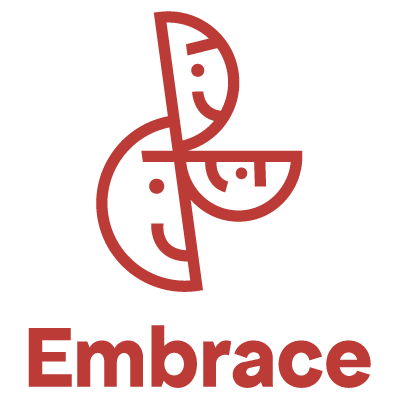Getting to know the decisions makers: the circle of conversations
In order to start engaging with policymakers, we organized at least one Circles of Conversation per implementation territory. These moments aimed to create trusting relationships between the partners and the policymakers involved in the project, to entrench their willingness to collaborate in this initiative.
The information gathered during the Circles of Conversation will be relevant to the design of the upcoming activities of the Embrace project: listening sessions, face-to-face meeting and so-projecting workshops. During the informal conversation, three questions were the pillars of such moments. A summary of the main ideas collected is presented below.
What are the biggest challenges and frustrations that policymakers face in their work with newcomers?
Policymakers state that the integration issues are getting more complex and one of the biggest challenges is to change from an emergency call to action to a more structured one, in which basic needs are satisfied and newcomers can be involved in decision-making processes. However, and also due to the lack of human and financial resources as well as lack of national/institutional support, highly bureaucratic systems, and rigid top-down laws, policymakers are still confronted with challenges regarding documentation/ citizenship, housing, food, employment/labor exploitation or communication/language learning, which were accentuated by the pandemie and the emergency response needed during the Ukrainian crisis. There’s a desire to promote the participation of newcomers in their own integration and sense of belonging processes, but policymakers face challenges concerning language, lack of trust, cultural differences and diversity, and lack of know-how to create informal and effective participatory contexts.
What are the biggest motivations that policymakers have in their work with newcomers?
Policymakers are highly motivated to engage in the Embrace project, recognizing the importance of involving newcomers in decision-making processes and including the migration topic in social policies. There’s a will to discuss challenges and acknowledge the efforts that have been done about turning the migration issue into an opportunity for policymaking at every level of governance. In addition, they want to better connect newcomers with local populations, which is not easy, despite the solidarity shown during the Ukrainian crisis. Overall, policymakers show a desire to create a fairer and more inclusive world, where human rights are guaranteed for everyone, and diversity is seen as an advantage. They are passionate about the possibility of transforming their territories through interculturality and believe in the importance of listening for better policy making procedures and services. There’s interest in the newcomers’ inputs and motivation to create initiatives and platforms that allow them to share their recommendations with policymakers, like, for example, more collaborative circles of conversation or committees with the representation of migrant groups.
Which are the topics for which the knowledge of the newcomers would be most useful for these local authorities’ work, in 2023?
Newcomers’ knowledge is seen as an added value by most policymakers. Policymakers believe the inputs of newcomers can help in both strategic and practical situations addressed by local authorities, although ensuring their participation can be challenging due to cultural clashes, newcomers’ more urgent needs, autonomy issues, or no connection to higher levels of decision-making. The recommendations of newcomers can be used to raise consciousness of the existent diversity and to define, recognize and document their real needs as, sometimes, policymakers don’t know how newcomers live. Policymakers think of newcomers as “city-users”, who can contribute to improving any aspect of the city and any “public life policy”, although their specific inputs would be most valued in areas like education curricula, language learning, regulatory measures, and participatory initiatives. The knowledge of newcomers supports the municipalities’ work toward integration, and their advice can be helpful to give feedback on services and policies.
